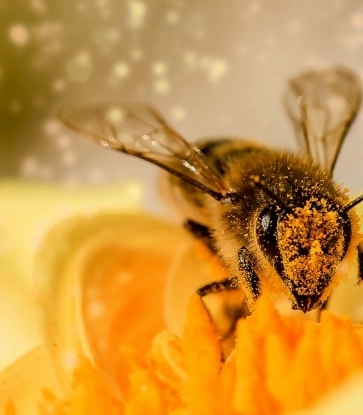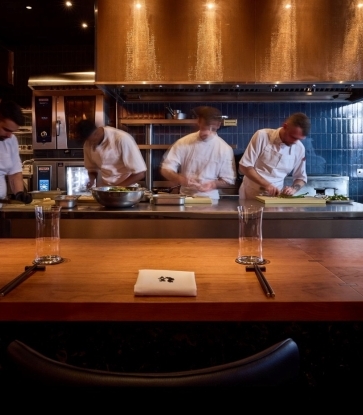The topic of 'Planet vs Plastics' – the theme of Earth Day 2024 – looks at the need not just to reduce, and ultimately eliminate, the production of single-use plastics that damage our natural world, but also to raise awareness of its health impacts on humankind. While our use and disposal of plastics has been brought to the fore in recent years – with great emphasis placed on the impact it has on wildlife – the effects on human health are far less considered. The process of plastics breaking down into microplastics releases toxic chemicals which not only end up in the air we breathe, but which leach into our food and water sources.

“The word environment means what surrounds you. In the case of plastics, we have become the product itself – it flows through our blood streams, adheres to our internal organs, and carries with it heavy metals known to cause cancer and disease.”
Kathleen Rogers, President of EARTHDAY.ORG.
According to the Earth Day organisers, plastic production has now grown to more than 380 million tonnes per year, with more plastic having been produced in the last ten years than in the entire 20th century – and, despite increased awareness, that figure is only set to rise.
This problem permeates all aspect of society, but is maybe most obvious for the everyday consumer when it comes to food and drink: from the plastic ready-meal containers and kitchen cleaning products bought in the supermarkets to the plastic bags we carry our shopping home in; from the coffee cups and bottles of water bought on the way to work to the cling film wrapped around our leftovers or packed lunch.

In recent years, the UK has seen a push to reduce the number of single-use plastic bags via a switch to paper bags, the introduction of a 10p bag levy and the promotion of material alternatives and “bags for life”, however there were still more than 500 billion plastic bags – that’s one million bags per minute – produced worldwide last year.
Many of these bags are used just once for a trip home from the shops and then discarded, with a useful working life of just a few minutes compared to an afterlife that covers centuries – and even once they have disintegrated, their presence is still felt, as their minute particles (microplastics) still occupy every corner of the planet.
Figures from london.gov.uk state that the average adult in London buys more than three plastic water bottles a week – that’s 175 bottles a year – contributing to some 7.7 billion plastic bottles being bought across the UK annually. With the Mayor’s ambitious aim to send zero recyclable or biodegradable waste to landfill by 2026, we certainly all have our part to play when it comes to single-use plastics.

The easiest and most immediate impact we can have is by buying a reusable drinking bottle – and it’s not just helping save the planet, it’s cost-effective too! If you’re not already familiar with the ‘Refill’ scheme, it’s time to get acquainted. The initiative started in Bristol in 2015 before launching nationally, and encourages shops and eateries to offer free tap water refills to members of the public; download the Refill app to find the closest places to fill up or keep an eye out for ‘Refill’ stickers in businesses’ windows. This isn’t just for when you’re in the UK either, as there are now more 330,000 refill stations registered globally.
From individuals’ day-to-day eating and drinking habits to the hospitality industry as a whole, there are plenty of steps we can all take to create a better future.

Michelin’s award for sustainability – the Michelin Green Star – was launched in the UK & Ireland in 2021, highlighting chefs and restaurateurs who set the standard when it comes to sustainable kitchen practices. These restaurants prove that gastronomic excellence does not need to come at a cost to the environment, as they offer dining experiences that combine culinary merit with outstanding eco-friendly commitments.
Many restaurants now eschew plastics in favour of other, greener materials. Cling film has been replaced by reusable wraps and refillable containers, and deliveries arrive fresh and unwrapped in crates that are used time and again. Culture in Falmouth takes it one step further, with their vegetables arriving caked in soil with the leaves and roots still attached, in a bid to use the maximum amount of each plant in their cooking.
This is a great step forward from the hospitality industry’s past but, alone, policies like this are no longer enough in a world that is now drowning in plastic waste. This is why you’ll find that at many of our Green Star restaurants their no-plastic policies extend into the smaller details of their operations too. At Henry Robertson in Llandderfel, the team wear uniforms made from recycled plastic, while at Silo in London – which operates without a bin and is the world’s first zero waste restaurant – the bar counter is made from recycled bottles, the tabletops from reconstituted food packaging, the crockery from recycled shopping bags and the lampshades from fungus grown on used brewing grains.
Hero image : FG Trade Latin/iStock





















